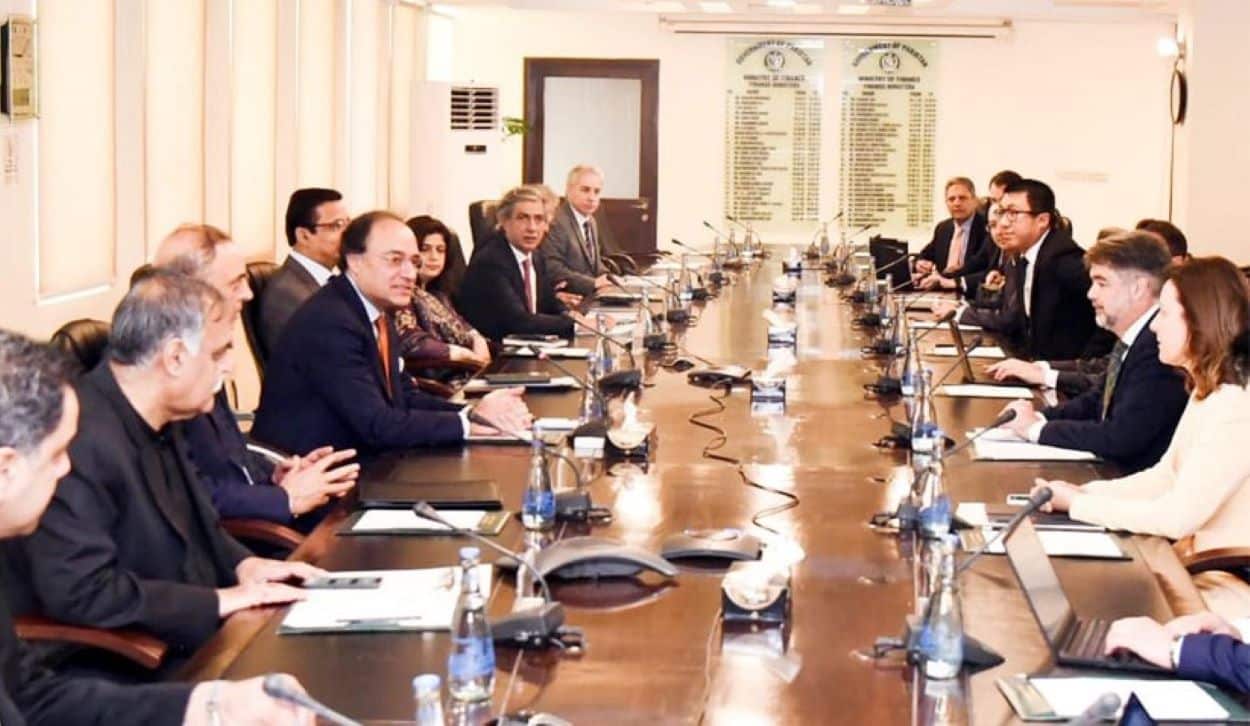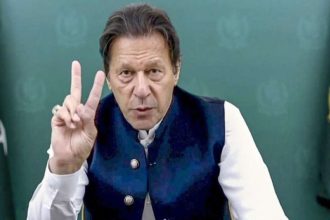Pakistan and the International Monetary Fund (IMF) started negotiations on the 24th ‘longer and larger’ bailout programme. The discussions began with an anticipated upfront fiscal adjustment of more than Rs1.6 trillion (1.5% of GDP) in the upcoming budget.
Finance Minister Muhammad Aurangzeb led the Pakistani delegation, which included State Bank of Pakistan Governor Jameel Ahmed, Federal Board of Revenue Chairman Amjed Zubair Tiwana, and their respective teams. Nathan Porter, the IMF mission chief to Pakistan, led the visiting IMF delegation.
A statement from the Ministry of Finance mentioned that the finance minister welcomed the IMF team and thanked them for completing the Stand-By Arrangement (SBA). He updated the IMF team on improvements in macroeconomic indicators during the SBA and emphasized the government’s commitment to continuing and expanding the reform agenda.
Fiscal Adjustments and Revenue Measures
Sources indicated that the two sides would focus on sector-specific issues in the coming days. However, most of the groundwork was completed during the recent nine-month SBA. Future lines were drawn that must be completed before presenting the federal budget, tentatively scheduled for June 6-7.
In the coming budget, a fiscal adjustment of at least 1.5% of GDP, or about Rs1.6 trillion, is necessary. This will involve additional revenue measures, expenditure rationalisation, and privatisation. The additional revenue measures are expected to contribute the most. The allocation for these three major areas will be finalized over the next few days.
The finance minister has started working on pension reforms as a key expenditure rationalisation measure, supported by fewer allocations for development spending. On the revenue side, the focus will be on expanding the tax net by transforming the general sales tax into a real value-added tax (VAT). This will include expanding the tax base to retail and wholesale traders and agriculture and reducing income tax slabs with uniform applicability to all incomes. The petroleum levy is expected to be a key source of non-tax revenue, with a target of at least Rs1.1 trillion in the coming budget.
The government has committed to the IMF to continue timely gas and electricity tariff adjustments starting with the new fiscal year. Efforts will also be made to reduce energy costs and involve the private sector to address circular debt. The government has promised to maintain a tight monetary policy, switch to a market-based exchange rate, and strengthen social security and state-owned enterprises (SOEs). However, due to political unrest and geopolitical situations, the IMF expects major risks to the reform programme.






